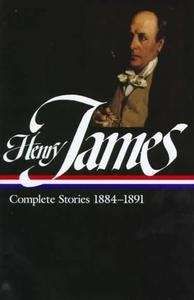Complete Stories 1884-1891

Editorial Library Of America
Fecha de edición febrero 1999
Idioma inglés
EAN 9781883011642
904 páginas
Libro
encuadernado en tapa dura
Resumen del libro
Sometimes overshadowed by his work as a novelist, Henry James's short fiction is an astonishing achievement, a triumph of inventiveness and restless curiosity. This Library of America volume (the third of five volumes devoted to his short fiction) includes among its seventeen stories some of James's greatest masterpieces.
"The Aspern Papers" is a stunning novella about emotional ruthlessness in the service of literary scholarship. "The Pupil" is a densely suggestive account of the moral perplexities underlying the relationship between an impoverished tutor and a young invalid. "The Lesson of the Master" is an intricate study of ambition, disappointment, and the demands of a life devoted to art. "Brooksmith" is a moving portrait of a house servant and "Sir Edmund Orme" is an enthralling ghost story.
In "The Liar," a painter attempts to force a former love to admit that her present husband is a pathological liar; in "The Patagonia," a young man cavalierly flirts with a young woman en route to her wedding in England, with disastrous consequences.
More than half the stories within this volume are available in no other edition.
Edward Said, (1935 2003), volume editor, was University Professor of English and Comparative Literature at Columbia University, and the author of many books, including Orientalism, Culture and Imperialism, and The World, The Text and the Critic.
Biografía del autor
x{0026}lt;p Henry James (Nueva York, 1843 - Londres, 1916) x{0026}lt;/p x{0026}lt;p Nació en una familia acomodada norteamericana, relacionada con artistas y escritores, y ya de muy joven viajó por Europa. Empezó a estudiar Derecho, pero prefirió orientar su carrera hacia la literatura y colaboró asiduamente en la prensa. Es uno de los escritores más importantes y reconocidos de la literatura estadounidense y un gran exponente de la narrativa transatlántica. Trazó relaciones con los grandes escritores de su época, como Edith Wharton, Robert Louis Stevenson, Gustave Flaubert, Iván Turguénev... Supo describir la complejidad de la alta sociedad neoyorquina en su época dorada, con mucha profundidad y un fuerte análisis psicológico de sus protagonistas.x{0026}lt;/p x{0026}lt;p x{0026}lt;br x{0026}lt;/p








